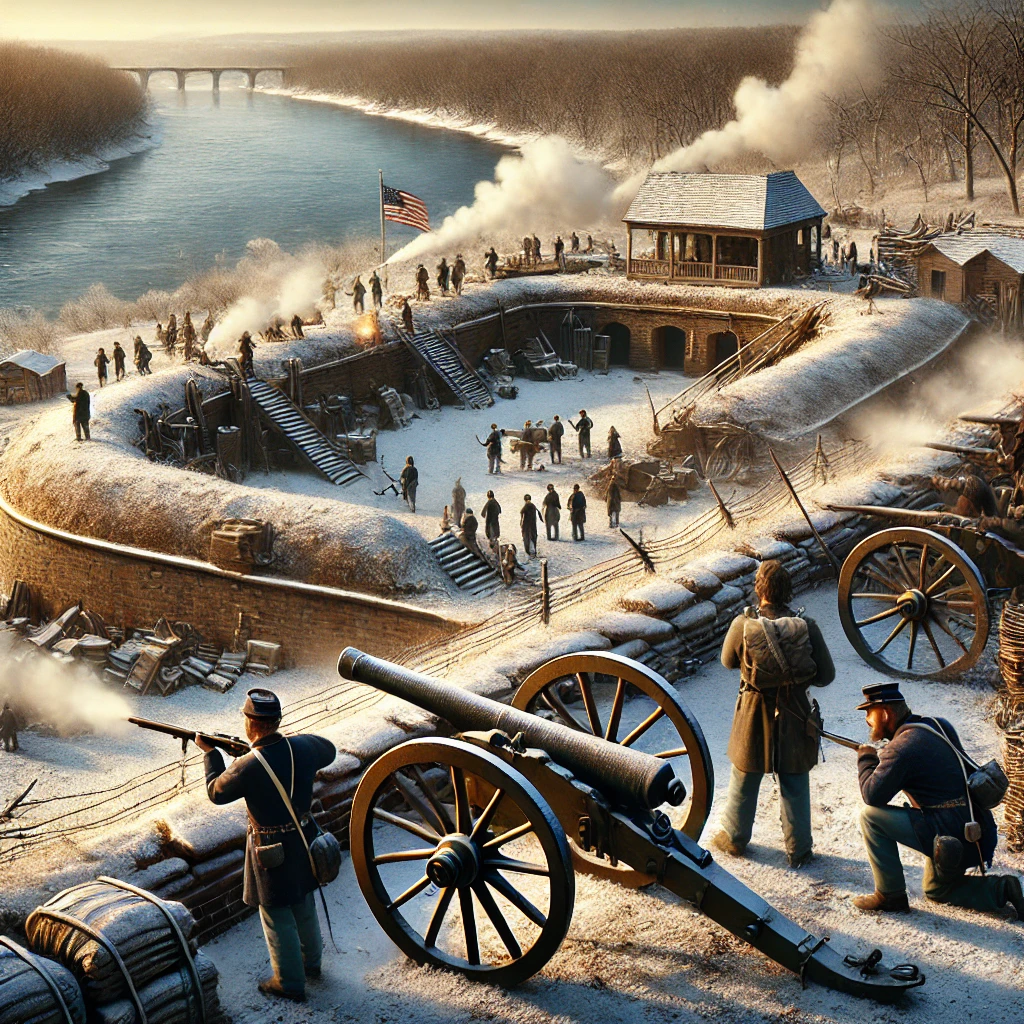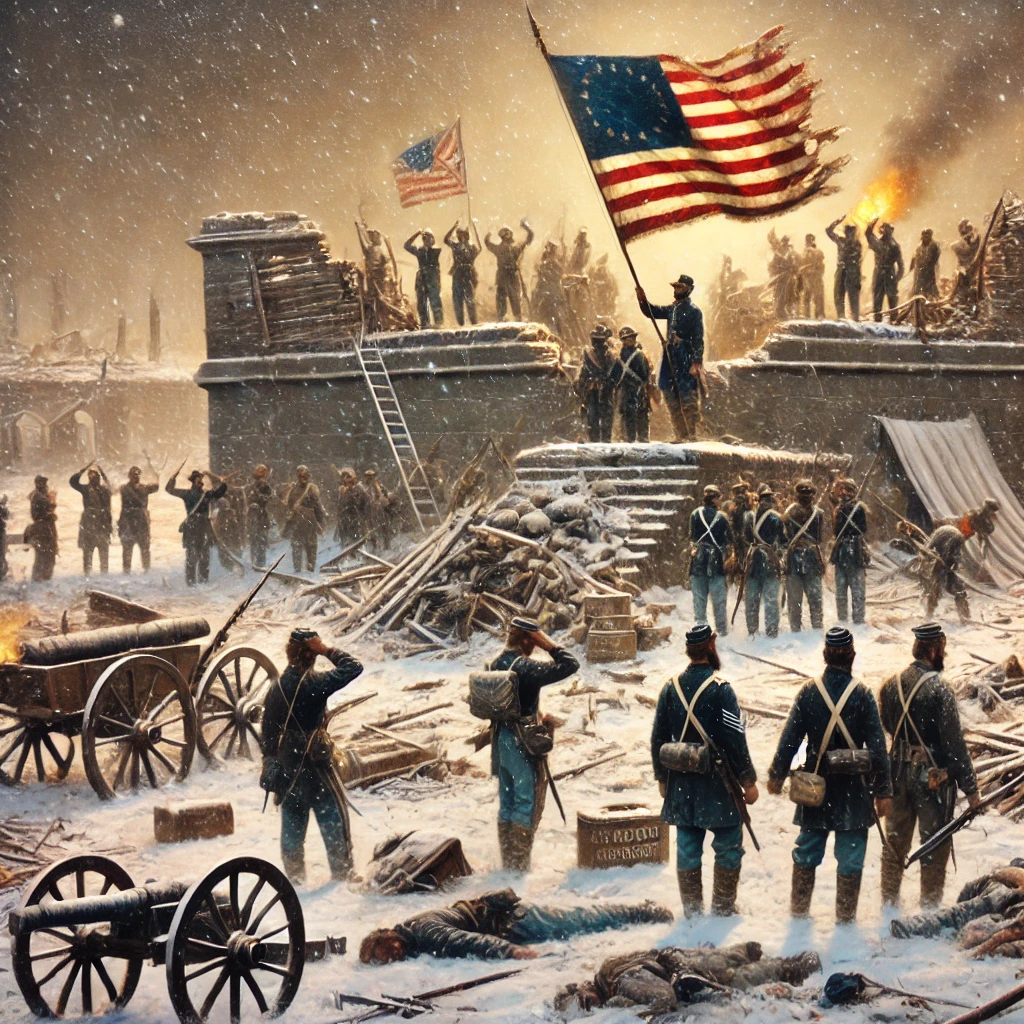A significant victory for the Union occurred on February 16, 1862, as Fort Donelson, a Confederate stronghold on the Cumberland River in Tennessee, surrendered to Union forces under the command of General Ulysses S. Grant. This pivotal event followed a relentless four-day siege, where Union troops, supported by naval gunboats, encircled the fort, cutting off supplies and escape routes for the Confederate defenders. Grant’s demand for “unconditional and immediate surrender” set the tone for his aggressive military strategy, earning him the nickname “Unconditional Surrender” Grant.
The fall of Fort Donelson was not just a tactical victory but also a psychological blow to the Confederacy. The surrender of nearly 13,000 Confederate soldiers marked one of the largest capitulations in American history at the time. The Union’s triumph opened the Cumberland River as a vital invasion route into the South, allowing Federal forces to penetrate deep into Tennessee and beyond.

The Siege and Surrender
The siege of Fort Donelson showcased the Union’s growing strategic capabilities. Grant’s coordinated assault, involving both ground forces and ironclad gunboats under Flag Officer Andrew H. Foote, demonstrated the effectiveness of joint operations. Despite fierce resistance and harsh winter conditions, Union troops maintained pressure, ultimately forcing the Confederate defenders to negotiate surrender terms.
Confederate leadership was plagued by indecision and conflicting strategies. Generals John B. Floyd, Gideon J. Pillow, and Simon Bolivar Buckner failed to present a unified defense, with Floyd and Pillow abandoning their posts before the formal surrender, leaving Buckner to bear the humiliation of capitulating to Grant.
Strategic Significance in the Civil War

Fort Donelson’s capture had far-reaching implications for the Civil War’s trajectory. It was part of a broader Union strategy to control key rivers and transportation routes, effectively splitting the Confederacy and crippling its supply lines. The victory bolstered Northern morale, which had been wavering after earlier setbacks, and demonstrated the effectiveness of coordinated land and naval operations.
For General Grant, the success at Fort Donelson was a career-defining moment. It catapulted him into the national spotlight, paving the way for his eventual leadership of all Union armies. The defeat also exposed weaknesses within the Confederate command structure, as disagreements among Southern generals contributed to the fort’s fall.
Lasting Impact on American History

The legacy of Fort Donelson extends beyond its immediate military consequences. It signaled a shift in the Civil War’s momentum, setting the stage for future Union victories in the Western Theater. The capture of nearby Nashville shortly after Fort Donelson’s fall further underscored the strategic importance of this victory.
Today, the site of Fort Donelson is preserved as a National Battlefield, a testament to the sacrifices made by soldiers on both sides. Visitors can explore the well-preserved earthworks, monuments, and interpretive centers that tell the story of this critical battle. The lessons of Fort Donelson—about leadership, strategy, and resilience—continue to resonate in military studies and American historical consciousness.
